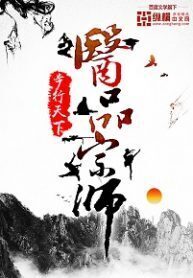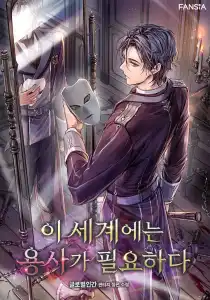Chapter 15:
“Death is the solution to all problems. No man – no problem.”
― Joseph Stalin
Chapter 15
Zhukov looked at the vast Ukrainian plains that he had returned to after a long time.
He had gone from the Kiev military district to the Far East, fought in the Battle of Khalkhin Gol, and now he was back to take charge of the whole of Ukraine.
He felt a new emotion.
In front of him, many officers of the Southern Front were lined up.
Zhukov, who was sitting at the top, glanced at some generals.
More than 60% of the reserve forces that should have gone to the entire front were concentrated in the Southern Front.
Based on this support, Zhukov and Kirponos prepared a bold counterattack plan.
A counterattack plan to crush the tip of the German Southern Army Group, the 1st Panzer Group.
The chief of staff recommended two generals as talents to lead this counterattack.
Zhukov had worked with them for a while and had no choice but to admire the chief of staff’s insight.
“Major General Malinovsky! Major General Tolbukhin!”
“Yes, sir!”
The chief of staff demanded that they be appointed as commanders. N0v3lRealm was the platform where this chapter was initially revealed on N0v3l.B1n.
They were assigned as corps commanders directly under the Southwestern Front and the Southern Front, respectively, and according to Zhukov’s standards, they showed amazing results beyond expectations.
Tolbukhin had a rough and blunt impression, but unlike his appearance, he was a meticulous and beloved commander by his subordinates.
Zhukov himself wanted to use him as his right-hand man and chief of staff.
At Kishinev, the core of the Bessarabian defense line, which was the border area with Romania, Tolbukhin faced eight German offensives.
And he succeeded in resisting all of them.
He squeezed out reserves and deployed them accurately in the direction of the offensive, leading all large and small battles to victory.
In the process, he blocked the German flanking infiltration, secured supply lines thoroughly, and built a solid defense line with excellent skills.
Zhukov highly praised his meticulousness, who constantly deployed reconnaissance planes that were scarce but still existed, and observed the enemy’s movements to an obsessive degree.
“Major General Tolbukhin, I will appoint you as the commander of the newly established 1st Shock Army! The shock army headquarters is currently only staffed with temporary agents in Zaporozhye, so I will fully respect your selection of lower-level commanders and staff. I will do my best to help you draw out reserves by using my authority as much as possible in the Southern Front.”
“Yes, sir! I will do my best not to disappoint you!”
It was a pity to send him far away.
There was a shortage of excellent commanders on the front line right now, but what could he do?
In Zhukov’s opinion, the best person to take charge of the first-line unit for breakthrough penetration was Tolbukhin.
Kirponos, the second-in-command of the Southern Front, also agreed with Zhukov’s opinion.
In the breakthrough operation, the first-line unit had to withstand the enemy’s offensive before the operation and then be deployed as the spearhead of penetration.
In this process, minimizing damage and deploying reserves boldly at the right timing and location required abilities that not everyone had.
Tolbukhin’s 1st Shock Army had to implement on the battlefield what was still a theoretical stage in breakthrough operation as a vanguard unit.
That’s how important the commander’s ability was.
“Good. Next is... Major General Malinovsky!”
“Yes! Comrade commander!”
“You are appointed as the commander of the 26th Army. The 26th Army will be exposed to the most fierce enemy offensive. I’m sorry... but please hold on.”
The 26th Army was the most protruding point of the Soviet defense line.
It was a terrain suitable for defense because it was surrounded by hills and mountains, but it was exposed to enemy attacks from three directions and was always in danger of collapsing.
It was mobile, but lightly armed mountain divisions were concentrated there, so it was inferior in firepower than other Soviet units.
Now Malinovsky had to lead them in defensive battles.
His sturdy shoulders trembled.
But there was no retreat for Soviet soldiers.
“Thank you, sir!”
Malinovsky showed his talent in defensive battles.
He turned around enemy attacks by launching counterattacks that shattered them, and used the momentary gap that appeared then to withdraw damaged units and reorganize them into ‘mobile defense’.
He showed his aptitude for this.
“If the 1st Shock Army is a hammer, then the 26th Army can be called an anvil. While the 1st Shock Army and 2nd Shock Army launch an offensive against Germany’s 1st Panzer Group, 26th Army must protect our left wing.”
“I will definitely defend the line!”
Kleist’s 1st Panzer Group tried to advance to Kiev, but was thwarted by the Soviet’s strong offensive.
The Germans and Soviets fought a fierce battle over a small city called Zhitomir and the river that flowed through it.
“I wish they wouldn’t come this way... Damn.”
“Enemy! Enemy!”
I had a bad feeling when I saw the Soviet soldiers moving around, and before I knew it, dozens of them were near us.
Damn it, as soon as they blew the horn, machine gun bullets rained down on us.
The closest outpost was probably manned by the Hungarian army.
But would they help us?
To be honest, Hungary and Romania looked very similar to outsiders.
Both countries had overthrown their kings and were ruled by military dictators.
But the Balkan nations were always at odds with each other, fighting over land and population.
Hungary, backed by Germany, had stolen Transylvania, our rightful territory.
We had joined the Axis powers to get our land back, but we still hadn’t received it.
How could we be on good terms with them?
The Soviet soldiers advanced slowly towards our trench, suppressing the two soldiers who were shooting back with their machine guns.
“Damn it, those Hungarian bastards...”
“...sons of bitches...”
I saw the Hungarian army in the distance.
But they didn’t seem to be coming this way, they just fired warning shots at the Soviets.
They probably thought of Romania, their rival for land, as a ‘hostile nation’.
The Soviets had advanced to within ten meters of us, but we couldn’t fight them with our meager weapons against their machine guns.
I pulled the pin of a grenade.
I had to take some of them with me...
“Hey, just put that away.”
“What?”
“Surrender! We surrender!”
One of the soldiers shouted surrender and stood up with his hands up.
The Soviets stopped shooting.
The soldier who was about to throw the grenade also put down the bomb and raised his hands.
The Hungarians were surprised and fired at us, but soon had to duck down again.
“Surrender! Help us!”
“Useless...”
The two soldiers started shooting at the Hungarians.
The Soviets looked puzzled, but anyway they came to our trench and looked at us with incredulous expressions.
“Hey, you are Hungarians, right?”
“No! Those sons of bitches...!”
“Heh, we’ll help you. Surrender?”
They didn’t say surrender again, but anyway they fired their machine guns at the Hungarians, who ran away in panic.
When the battle was over, the two Romanian soldiers collapsed.
They would be dragged away by these guys now.
They would probably tell them that we had deserted.
Maybe we would go to Siberia?
It was unfair.
“Come on, Romanian people, we’ll treat you well.”
“What?”
Come to think of it, this Soviet soldier was speaking Romanian in a halting and awkward way.
His smiling face somehow... made me want to trust him.
I grabbed his hand and got up.
“Come on, we are good people. Long live the workers!”
I didn’t know what he meant, but anyway he said he was a good person.
Damn it, spit.
I spat on the floor of the trench.
Yeah, right.
They wouldn’t kill us after doing this, would they?







